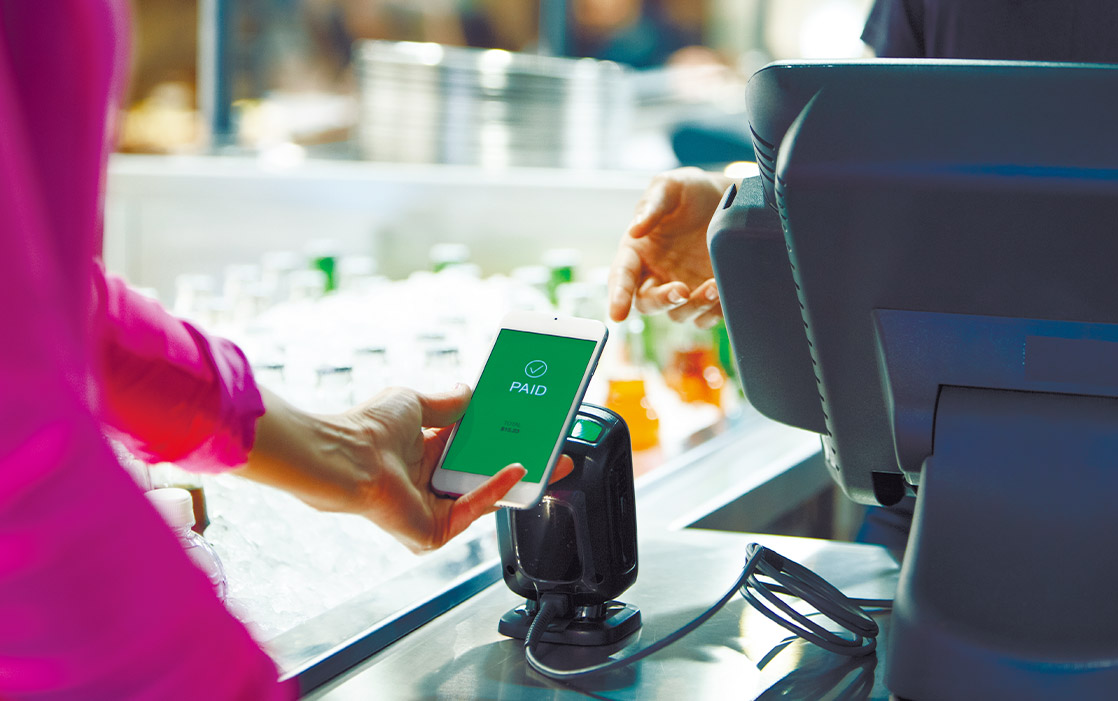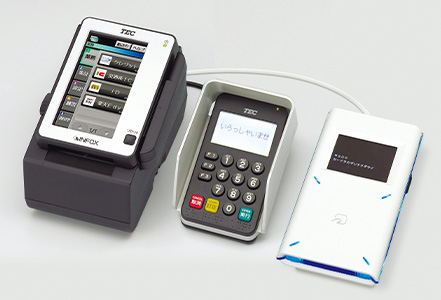
A New Future Born of the Digital Revolution

Cashless Payments
Cashless payments, whether by electronic money transfers, credit cards or debit cards, are becoming more and more commonplace throughout the world. However, Japan has been comparatively slow to adopt cashless payments, and to date, they account for no more than 20% of all transaction settlements in the country.
Conversely very few people use cash anymore in Sweden, which will likely become the world's first completely cashless society within the next few years. In fact, the total value of cash transactions in Sweden has already fallen to less then 2% of the country's GDP, far lower than in any other developed country.
In the retail world, balancing registers and counting cash at the end of each day require both time and manpower. It is also costly to transport cash and guard against theft, not to mention the resources (paper and metal) needed to make bank notes and coins. All of these facts illustrate the growing social cost of using cash.
Minimizing personnel expenses continues to be a concern for both businesses and society at large in Sweden, which has a relatively small population. The growth of cashless payments in Sweden has helped to reduce the number of ATMs and made it possible for people to pay their taxes and apply for public subsidies and deductions with their smartphones. The trend has gradually eased the financial burdens in both Sweden's public and private sectors.
Another country that has been quick to go cashless is China. In recent years, QR code payments have taken off in that country, where more and more unmanned convenience stores and karaoke bars are appearing, along with a variety of services that customers can pay for with a single smartphone app, including food delivery and taxi dispatching services. Cashless innovations are invigorating the Chinese economy and promoting technological advances. Most of the new businesses being built around cashless payments are university-launched startups, and no doubt their creative minds will take advantage of data gathered on payment histories and consumer trends to generate many more clever ideas in the years to come.
The worldwide digital revolution is giving rise to a new, “cashless civilization,” and even cash-oriented Japan is finding itself on the cusp of reform.
Improved Convenience Through Electronic Payments
Mitsubishi Corporation (MC) is providing electronic payment services through its subsidiary, Transaction Media Networks Inc., which is developing a platform that will enable consumers to use a single device to process various kinds of cashless payments. It is already being used by Lawson convenience stores and many other businesses throughout Japan. As the demand for electronic payments increases, MC will look for more ways to leverage its services to meet that demand and improve customer convenience.

This article appeared in Asahi Shimbun's “GLOBE” feature of November 3, 2019

